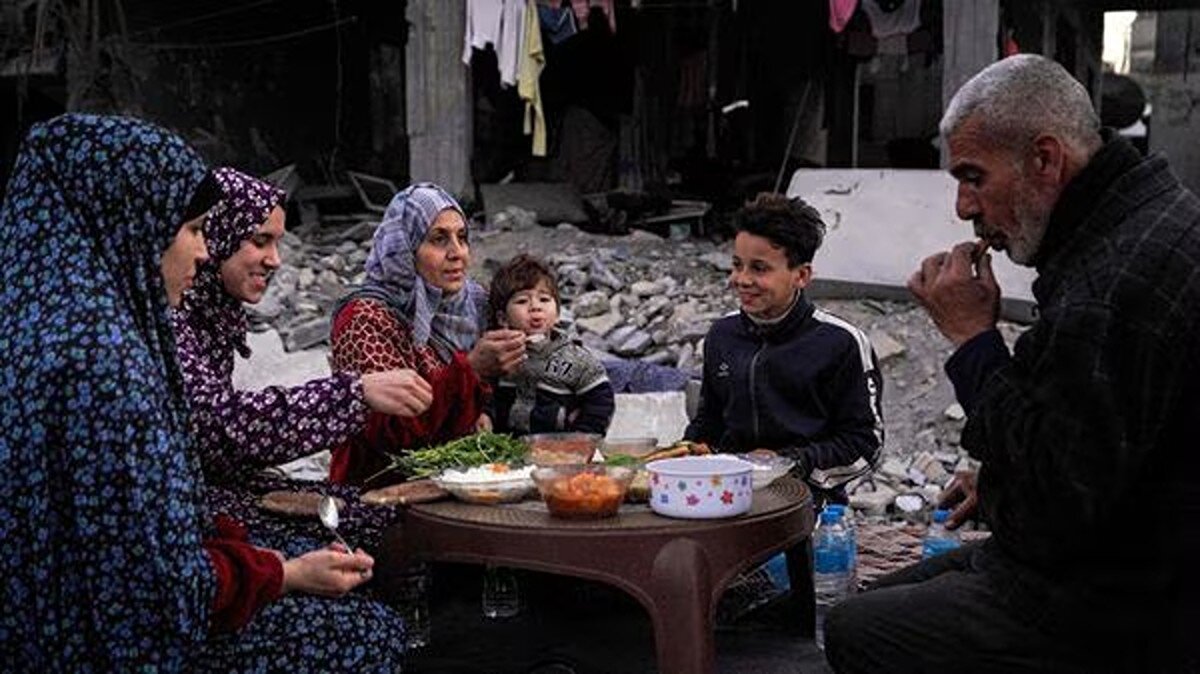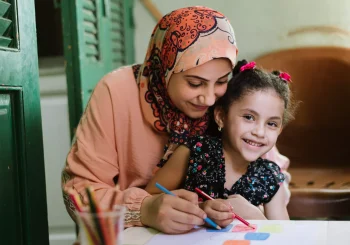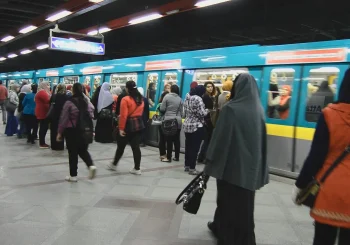Each year, Ramadan arrives accompanied by familiar messages that flood our inboxes, WhatsApp chats, and social media feeds. From friends and family to social media, the message is always the same: Ramadan is a time for giving, connection, and spiritual growth.
Each year, the usual rhythm of Ramadan returns, bringing with it the familiar routines of past years. We gather with loved ones, plan iftar and suhoor meals, navigate work schedules, and often extend a helping hand through charity or community meals. The certainty of Ramadan’s end, a relief from the fast’s hunger, offers lightness to the days.
Like many, we might still view Ramadan through the lens of our childhood. Parents, grandparents, radio hosts, writers, and teachers have long shared with us generations-old narratives of what Ramadan means to them, reflecting their own times and memories. We inherit these stories as our own, even if they don’t resonate with our current reality.
Yet this year, Ramadan arrives amidst a starkly different reality than our parents experienced. The story carries a heavy weight of suffering, with millions of people in Gaza facing the horrors of war and the pangs of hunger. Malnutrition and disease are taking a heavy toll, with the Gaza Health Ministry reporting at least 20 deaths from malnutrition.
Humanitarian organizations also warn that the number of people (2.3 million) deprived of food in Gaza is the highest in the world, with many suffering silently due to limited access to medical care.
Experiencing religion and holidays shouldn’t be solely through borrowed narratives. It’s also about our own reflections –how we connect life experiences with our faith. These personal reflections become the legacy we pass on, reminding future generations to truly live their religious holidays, not merely exist within them.
These stories make us contemplate the unique circumstances of Ramadan this year, set against the backdrop of these current events. How can we possibly recapture the emotions and spirit of last year’s Ramadan when the world around us has shifted so dramatically?
Ramadan, I believe, transcends the physical spaces of our homes and neighborhoods. It goes beyond the daily rituals of reciting Quran verses, enjoying special sweets like stuffed dates and knafeh with mango and cream, reconnecting with friends at taraweeh prayers, or observing the special night of Laylat al-Qadr.
Ramadan extends far deeper; it lives within our hearts. It’s a mirror reflecting our values, priorities, and how we connect with the wider world. The way we observe Ramadan is also a reflection of how we meaningfully connect with the world. We are not meant to passively pass through these holy days. Ramadan calls upon us to actively engage, to react to its message with compassion, generosity, and a renewed sense of connection to the world around us.
Instead of simply following tradition, we have to actively engage with the holy month. Ramadan beckons us to embrace a different story, to rewrite our personal narratives of the holy month. It compels us to look beyond, to recognize the grander purpose it reveals: a life that transcends fleeting and selfish materialism.
Ramadan calls us to embrace our true essence as human beings. The more we connect with others, the more we resonate with our own humanity. The more we recognize the struggles of others and dedicate ourselves to their support, the more we gain a deeper understanding of our true role as humans.
To truly embody the spirit of giving this Ramadan, let’s turn our hearts towards those in need, particularly the people in Gaza. This Ramadan, the most important story we should carry with us, and share with future generations, is one of selflessness. Let’s remember that Ramadan 2024 wasn’t just about ourselves, but about supporting the people of Gaza.
Sharing this story won’t just inspire future acts of giving. It will also remind us of the deeper meaning behind Ramadan, a meaning that transcends the rituals.While food connects us, the stories we share about compassion and generosity during Ramadan solidify the spirit of giving that defines this holy month.
Contributions to organisations, such as Gaza Kinder Relief, that assist Palestinians in need of humanitarian aid are among the easiest and most effective methods to support Palestine. For instance, make sure to select the “Gaza” option on the Talabat app the next time you place an order. You can also support online Palestinian businesses operating within Palestine or across the MENA region, such as the Ibtikar Fund and Palestine Online Store.
The opinions and ideas expressed in this article are the author’s and do not necessarily reflect the views of Egyptian Streets’ editorial team. To submit an opinion article, please email [email protected].







Comment (1)
[…] post This Year, Ramadan is for Giving to the People in Gaza first appeared on Egyptian […]